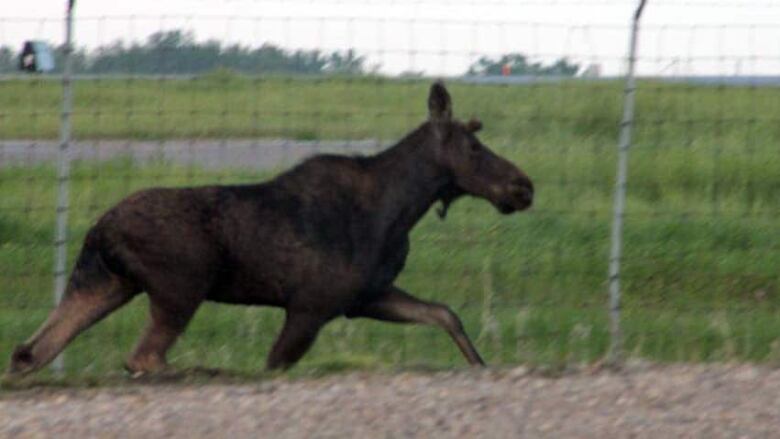GPS-equipped moose tracked by Saskatchewan scientists

People die every year incrashesinvolvingmoose. Now the University of Saskatchewan is putting GPS collars on 50 of the large mammals to see if anything can be done about it.
The Saskatchewan Farmland Moose Project launches this month with the tracking collars being attached to moosewhich are captured using helicopters and nets.
The collars will transmit data for two years and then fall off.
"This is a big leap forward in terms of our ability to understand what moose are doing," said Ryan Brook, who's supervising the four-year project, with theassistanceof theprovincial Environment Ministry and the Saskatchewan Wildlife Federation.
"We could learn an awful lot about how and where moose cross roadswhat time of day, what kind of roads and in response to what conditions."
The focus will be on the 250-kilometre stretch of the heavily used Highway 11 running between Regina and Saskatoona section that has seen a number of crashes in recent years.
"Moose crossing" signs are now up on the highway and the province has increased the number of moose hunting licences in southern Saskatchewan.
The researchers have a long list of questions, Brook said, including how the normally forest-dwelling moose have adapted to the farm belt.
Brook, who's with the Saskatoon-based university's wildlife ecology and community engagement lab, said interviews with farmers show that moose habits have indeed changed over the years.
"They say that they see moose feeding on peas, and alfalfa and canola on a regular basiswhich is clearly an adaptation," he said.
The hope is the scientists' findings willlead tobetter "moose management strategies"resulting in fewer people beingkilledand hurt and fewer moose getting run over.












_(720p).jpg)


 OFFICIAL HD MUSIC VIDEO.jpg)
.jpg)



























































































